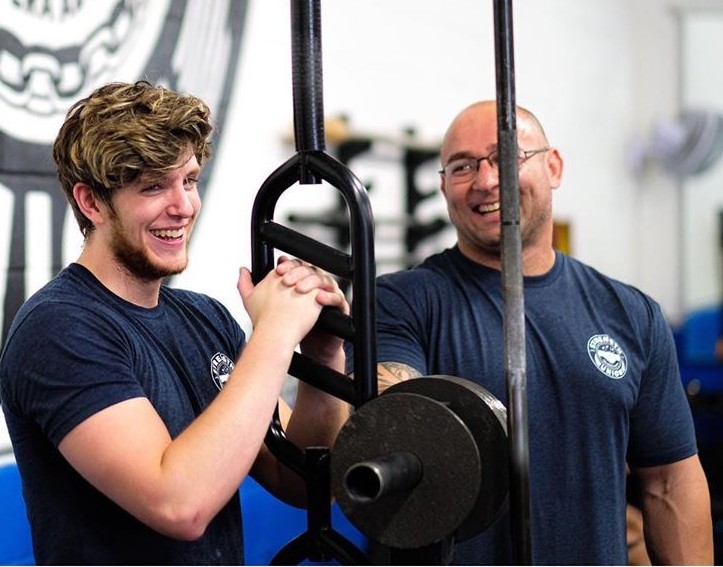
I am always looking for ways to improve recovery so I can train harder and more often. The research shows that the best ways to improve recovery are quality sleep between 7-9 hours a night, proper nutrition a slight calorie surplus, and a sound programming taking into consideration volume, load, and intensity. Ok great I have those things covered but I know that training can still beat you down so it would be nice to know a few metrics to help in determining should today be a hard, medium, or light day (yes it's a good idea to have these things in mind for every training session).
The most compelling evidence shows us that vertical jump, hand dynamometer, and sleep deprivation have the most accurate ways of assessing readiness. In a study by Haischer et al, 2019 the found that athletes with more sleep performed better velocities at the 1RM and lower RPE at their 1RM. We have also seen studies that showed chronic sleep deprivation to have negative effects on performance outcomes. (Stults-Kolehmainen et al, 2014) In a study by Watkins et al, 2017 they found that as athletes vertical jump decreased from fatiguing training sessions that their total volume that they were able to perform decreased as well.
There have also been some good reports that athletes who lost strength in hand dynamometer testing were strongly correlated with having a low readiness to perform. This is a good sign of the CNS being taxed, while velocity and jumping power are a good sign that the peripheral system is taxed. These are all good things to know when going into a session to be able to determine how the session should look. You can also use readiness scales like a Likert scale to ask athletes through a series of question how the perceived recovery capabilities are (Laurent et al, 2011).
I personally think it is a great idea to get subjective and objective data from athletes to determine their readiness for the day. By doing so you'll be able to pinpoint where things may be going wrong whether it be from sleep, stress, nutrition, etc.. or if those things are good than it is up to you as a coach to look at your program design. This constant interaction will allow you to really get the most out of your athletes and their training.
References:
- Haischer MH, Cooke DM, Carzoli JP, Johnson TK, Shipherd AM, Zoeller RF, Whitehurst M, Zourdos MC. Impact of Cognitive Measures and Sleep on Acute Squat Strength Performance and Perceptual Responses Among Well-Trained Men and Women. Journal of strength and conditioning research. 2019 Jul.
- Stults-Kolehmainen MA, Bartholomew JB, Sinha R. Chronic psychological stress impairs recovery of muscular function and somatic sensations over a 96-hour period. The Journal of Strength & Conditioning Research. 2014 Jul 1;28(7):2007-17.
- Watkins, C.M., Barillas, S.R., Wong, M.A., Archer, D.C., Dobbs, I.J., Lockie, R.G., Coburn, J.W., Tran, T.T. and Brown, L.E., 2017. Determination of vertical jump as a measure of neuromuscular readiness and fatigue. The Journal of Strength & Conditioning Research, 31(12), pp.3305-3310.
- Laurent CM, Green JM, Bishop PA, Sjökvist J, Schumacker RE, Richardson MT, Curtner-Smith M. A practical approach to monitoring recovery: development of a perceived recovery status scale. The Journal of Strength & Conditioning Research. 2011 Mar 1;25(3):620-8.









